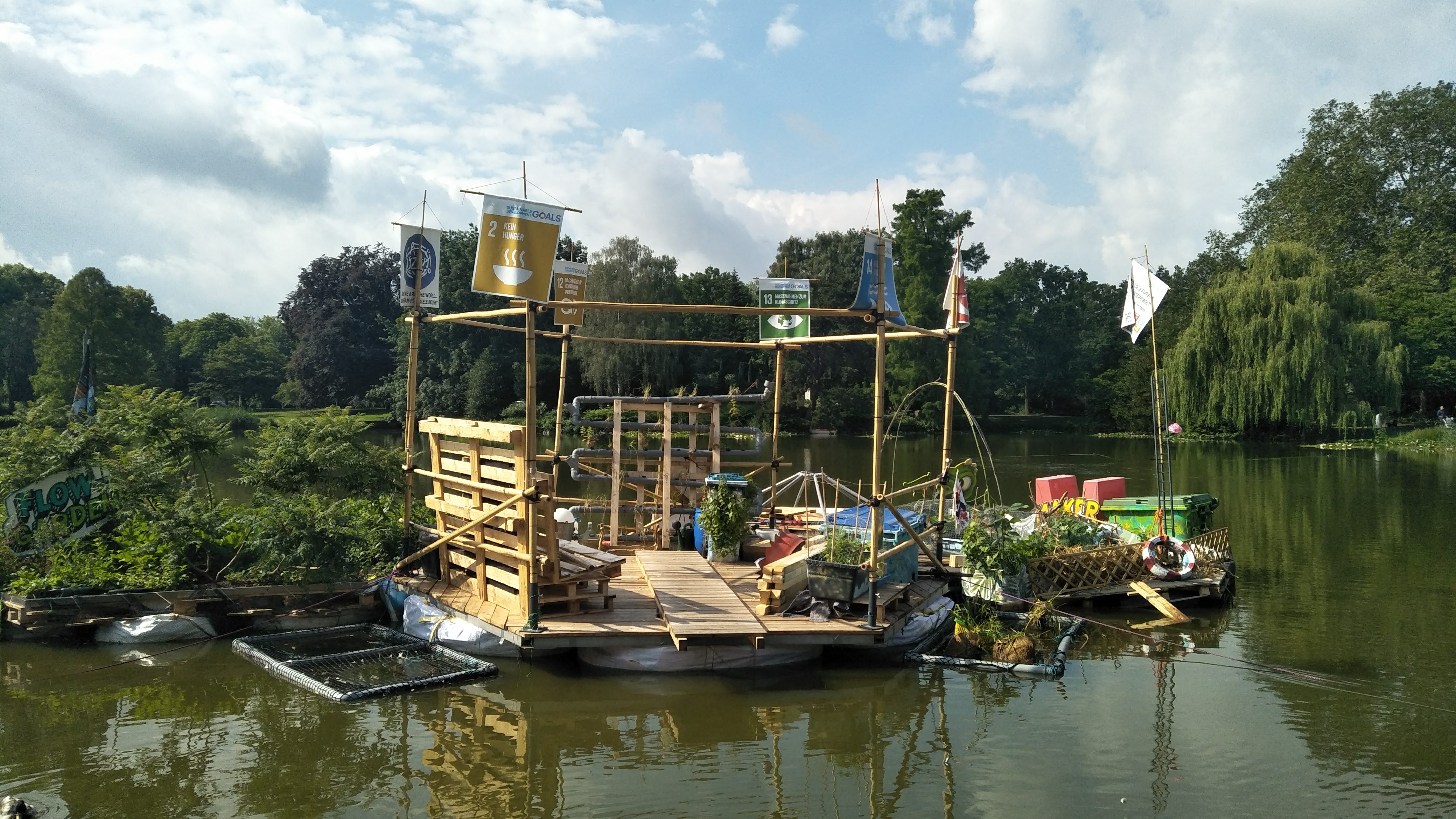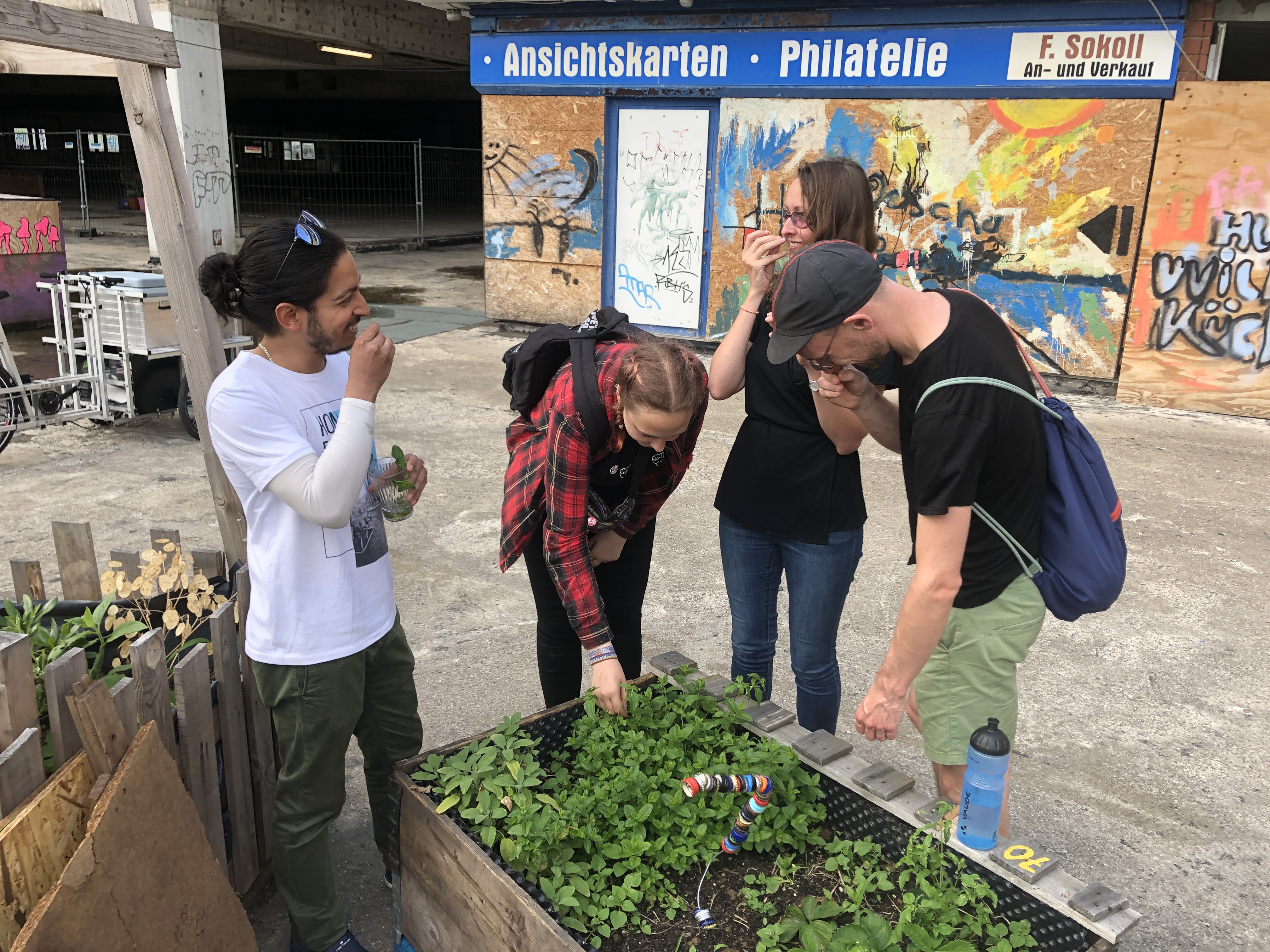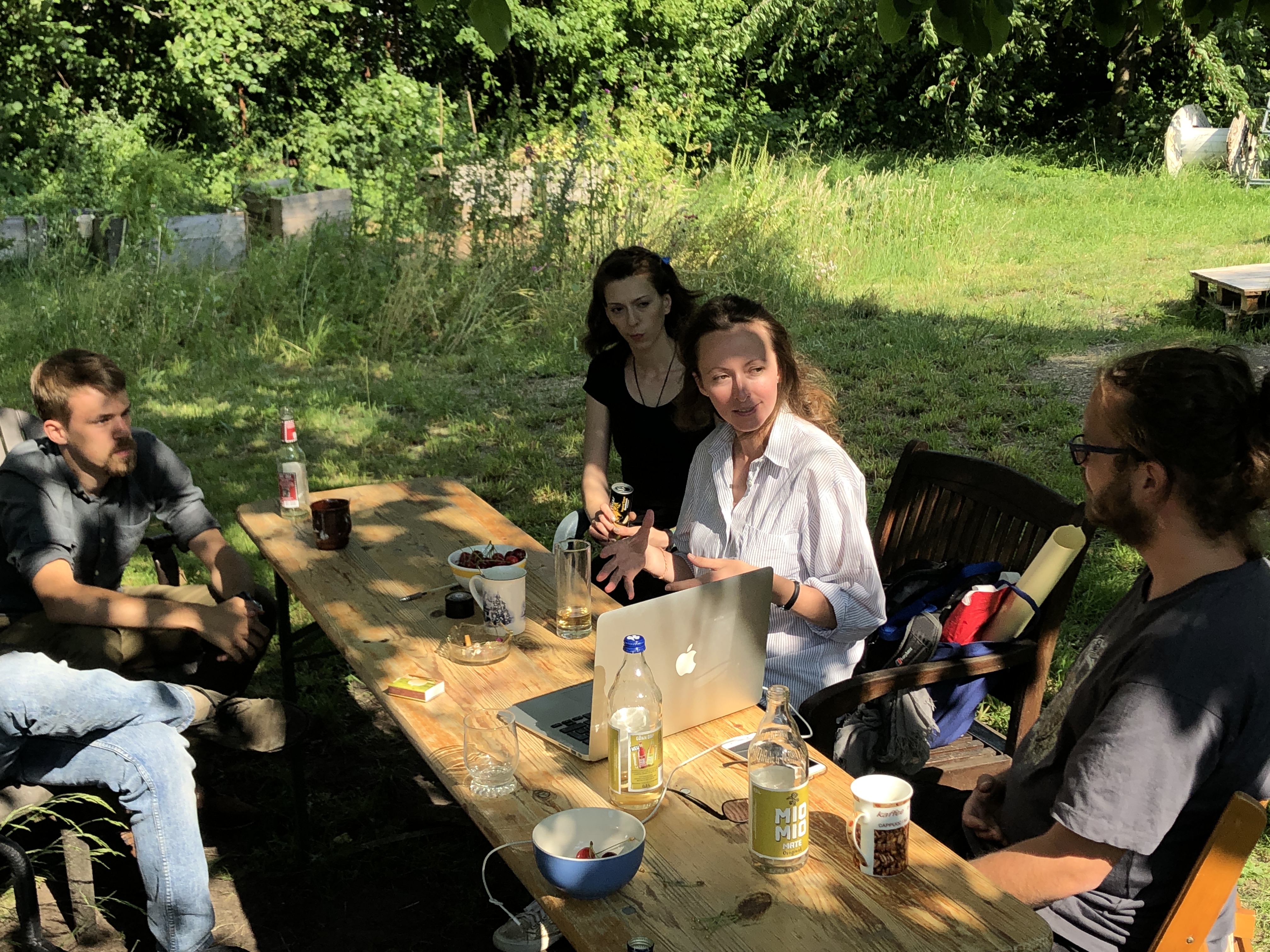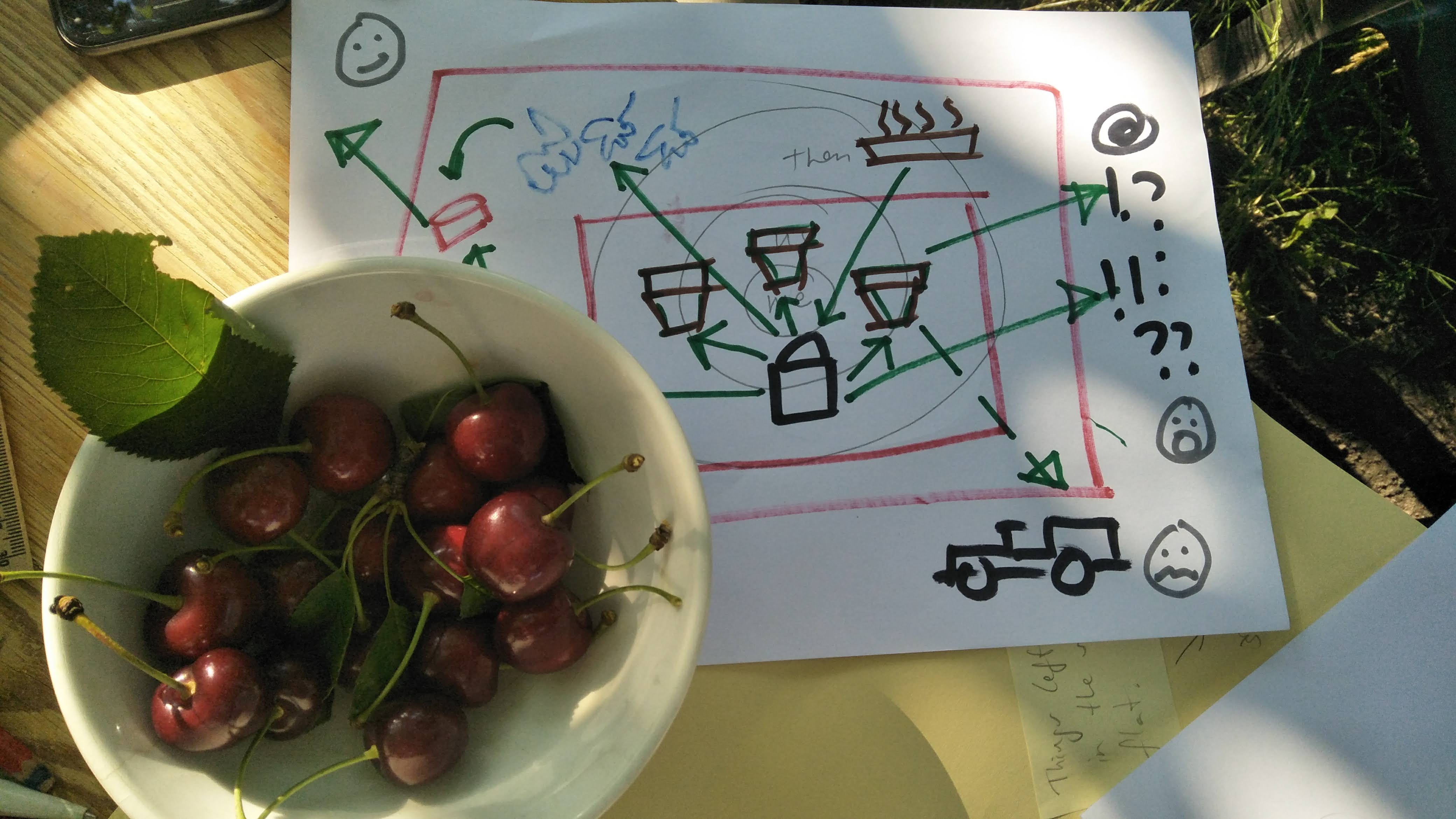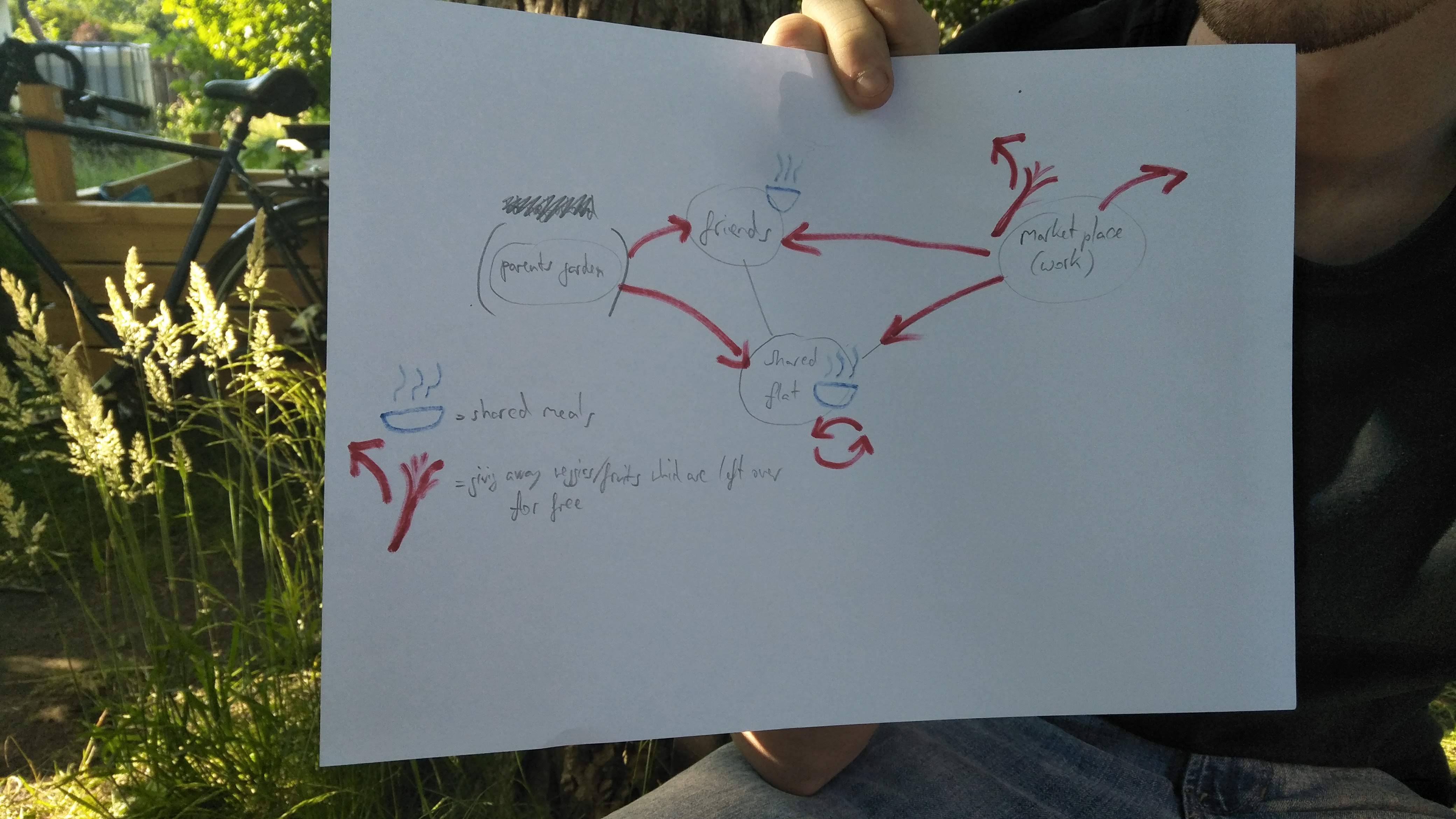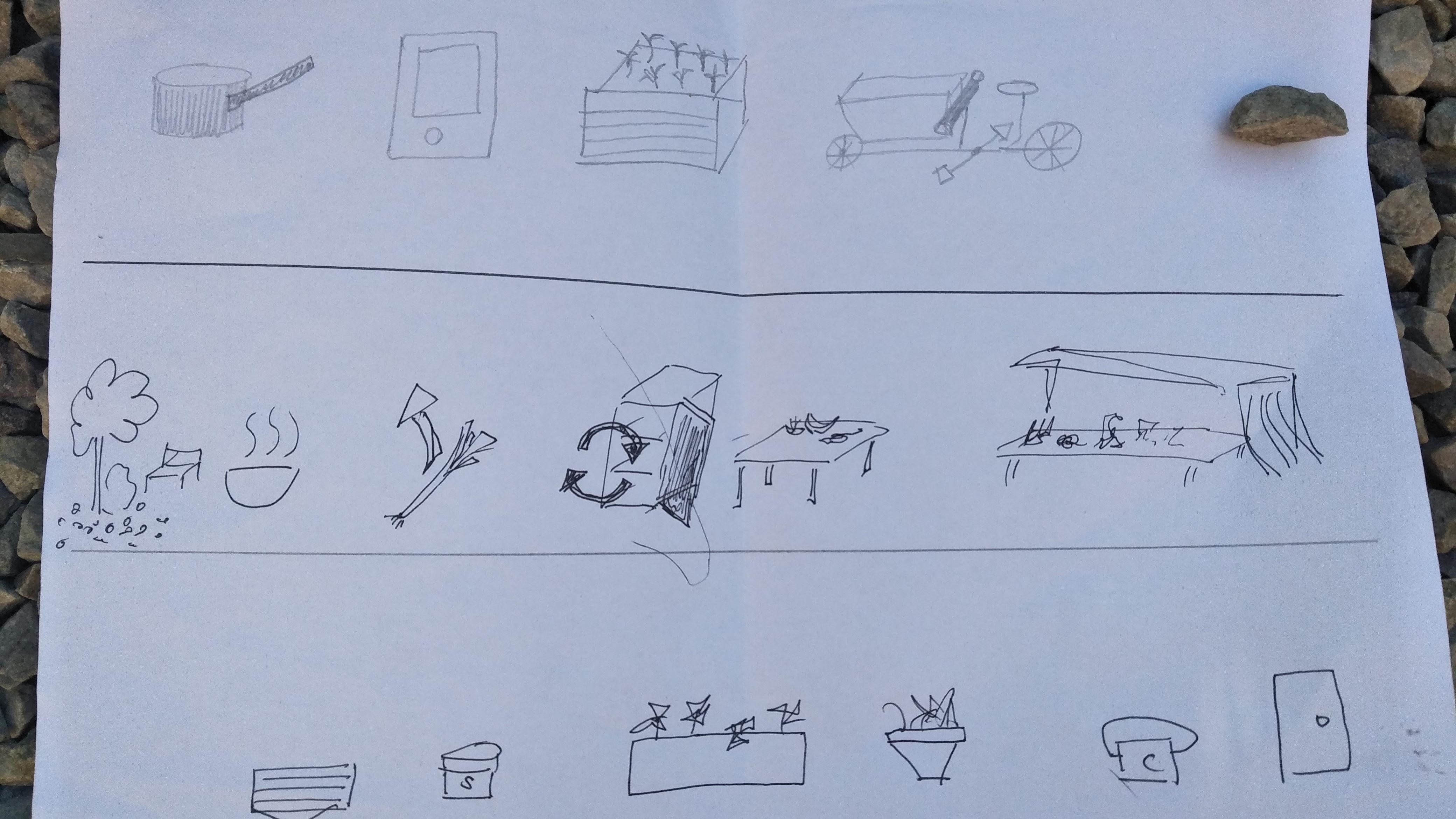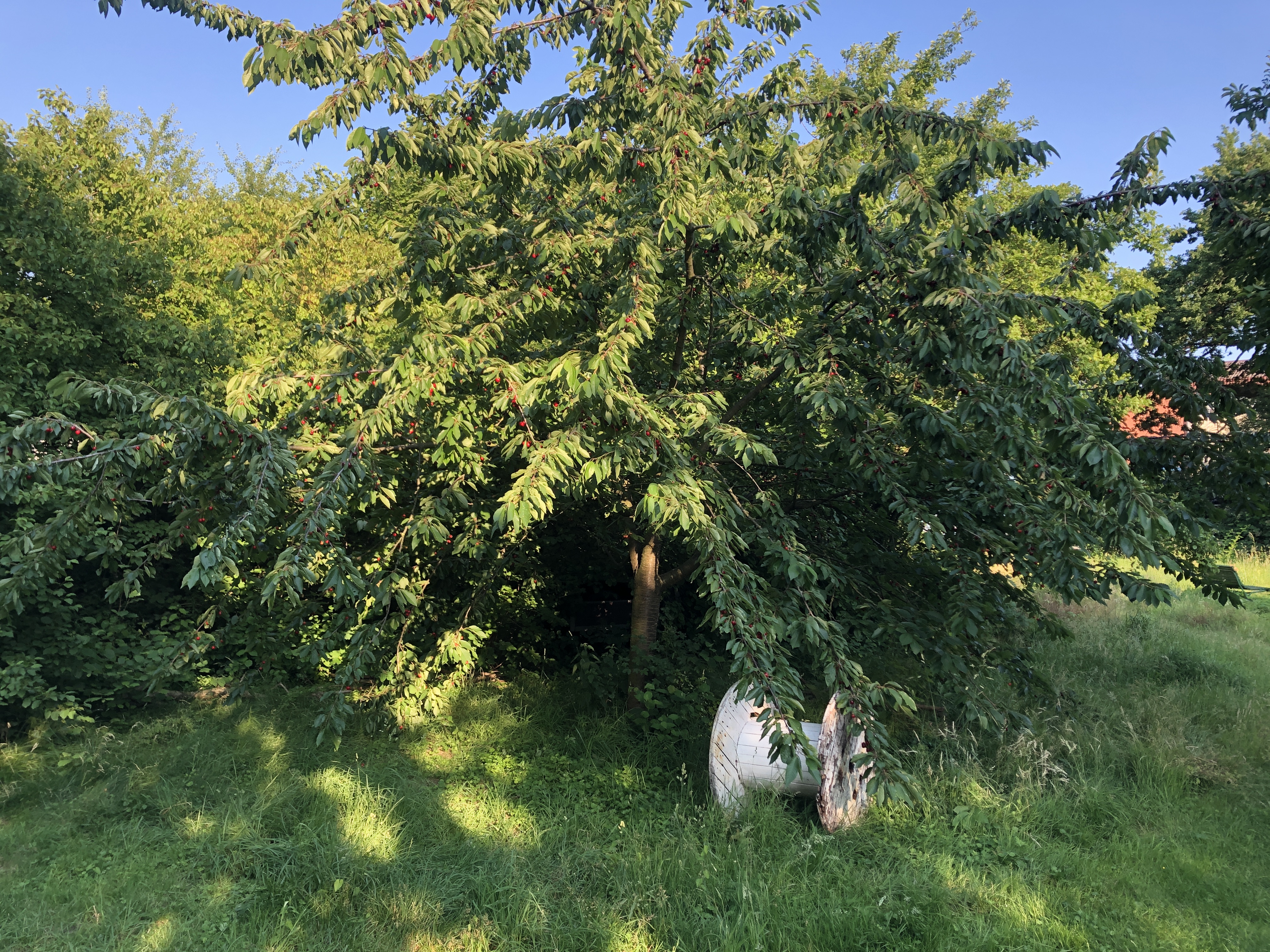Imagining a Food Sharing City
Published by Monika Rut on the 2nd July 2019.
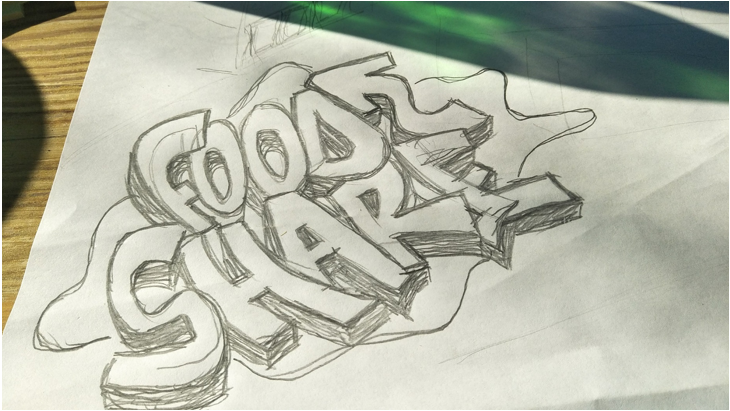
Like other transition towns across the world, Hanover city brings people together to explore how community self-organising can respond to many challenges arising from climate change, such as dependence of food imports. The city itself is a home to diverse food sharing initiatives, many of which are established by friends, neighbors, and communities, who are collectively building knowledge and participative networks that enhance community coherence, the sharing of skills, and social support through inclusivity. In Hanover, I was invited by the organisers of the Food Futures Events Serie, a series of talks and workshops that reflect on troubled food scenarios in cities and beyond. As a part of the event program, I was happy to do a workshop which reached out to the network of community gardens that have grouped together as part of transition town movement.
The Imagining a Food Sharing City workshop took place over two days. On the first day, we met in the Kuchengarten Linden (“Kitchen Gardens Linden)”, which is a rooftop community garden located in a near abandoned shopping centre complex. The Kuchengarten is supported by Transitions Town Hannover and it is a shared platform with infrastructure for growing herbs, flowers and vegetables in raised beds. Here members cook meals, hold informal discussions, and come together for relaxation. In this settings, we discussed food sharing practices and how they can help diverse communities improve cultural integration and form intergenerational relationships of reciprocal benefit. The mix of immigrants from yesterday and today, old and young people, and artists and researches proved to be fertile ground offering all of us to harvest reflections in the forms of thoughts, shared drinks and conversations.
The mapping took place in “Egons Villa”, which is one of the city’s communal space with raised beds, a fruit orchard and workshop space for transition towns community. Our discussions focused on the “seedling” of food sharing ideas; “growing” phase, which ended in a better understanding of what infrastructures enable sharing and “harvesting” for closing reflection. In the seeding part of the workshop, we mapped what food sharing means for us individually and collectively. For example, we all share food moments with our friends and family through everyday meals and many of us are also part of a community supported agriculture, food swaps and cooking classes.
In the growing part of the workshop, we thought of what infrastructures enable food sharing in the urban settings and all of the hybrid points of engagement that occur. We first began with our most intimate spaces of food sharing, our homes. Kitchens, fridges, food shelves and tables, are everyday food sharing infrastructures for those who share flats with strangers and families. Baking cakes, making jams, and grilling together, are all examples of how these infrastructures extend the sharing network to neighbors and friends.
In addition to homes, other infrastructures included work spaces such as offices, universities, as well as shops and markets in which leftover food from lunches is more likely to be disposed end of the day. While most of us agreed that it is challenging to save food from going to waste, others suggested that food sharing apps such as Too-Good-to-Go help to reduce food waste within food businesses. Additionally, we considered the trend in new forms of transportation available in the city such as cargo bikes, which are paving the way to increasing the mobility of food sharing from places such as markets and charities.
The workshop concluded with the harvesting part and with it came reflection on how we could harvest our experiences, infrastructures and collective imaginaries into food sharing cities. We realized that the challenge is not only regulatory, such as land use or food safety but it is also built within subjective meanings, motivating actions and social contexts. When sharing food spaces, skills, materials we are often influenced by ideologies, judgments and emotions that might blind some of us in pursuing shared goals such as waste reduction and social integration. In fact, Hanover might be the case where food sharing activities are challenging each other potential to create new possibilities and strengthening productive capacities. And as we realized that as subjective it is, food sharing practices are even harder to be assessed and their impact made visible to governments.
As we sat under the walnut tree and while sharing cherries from the garden, we all felt a sense of gratitude in the comfort of a fresh breeze and in the shade away from the sun. In this moment, the garden became a community sense of place, that nourishes ecological and social entanglements. And as we learnt that food sharing encounters, experiences and infrastructures make us more resilient in time of climate crisis, we also realized that resources that communities cultivate, struggle for, and share give both physical and emotional strength to sustain energy for social and environmental change.
Monika
© 2015 - 2024 ShareCity | Web Design Agency Webbiz.ie
